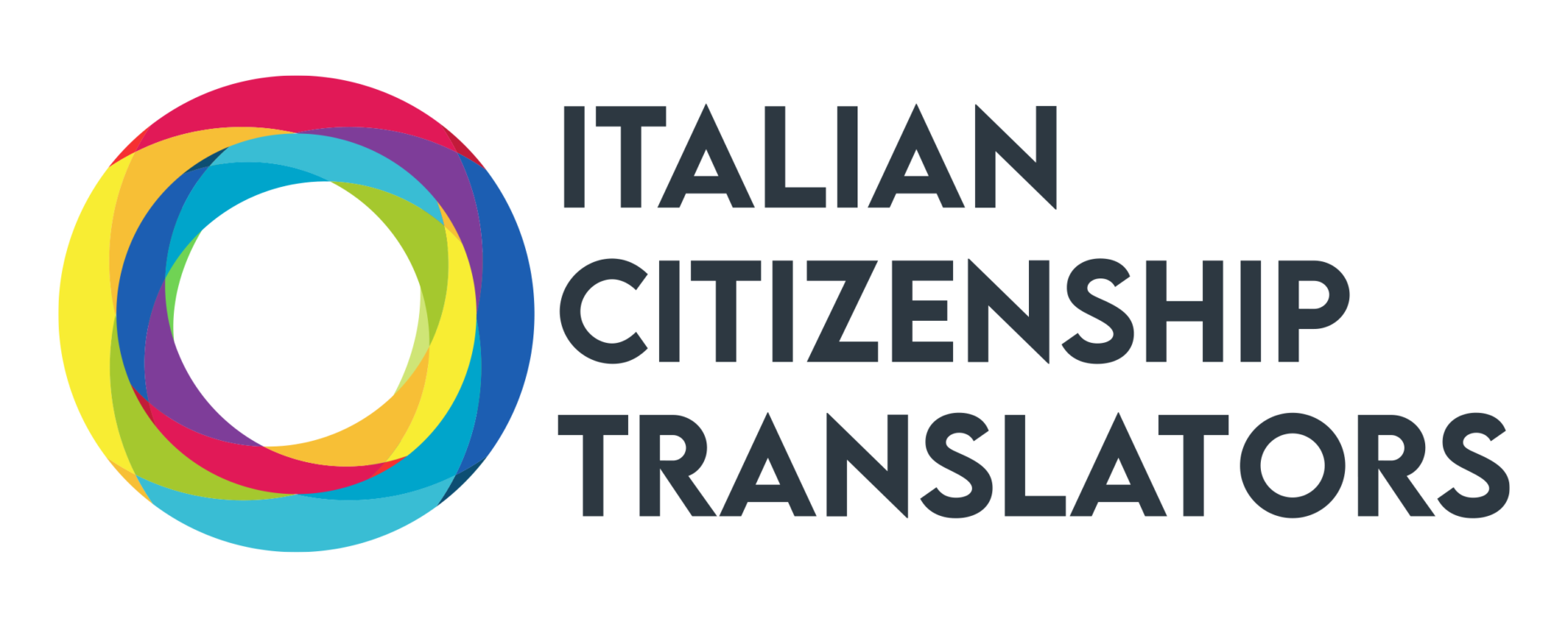
What is a Sworn Translation?
If you’re applying for Italian citizenship, you might already know you’ll need to translate any foreign language documents into Italian. Whether you apply for citizenship at your local consulate, via the municipality in Italy, or through the Italian courts, your documents will need to be accompanied by an Italian translation. What you might not know, though, is that in certain cases your translations will need to be certified or sworn.
Which documents need to be translated?
Generally speaking, all documents submitted for your citizenship application that aren’t in Italian need to be translated. This includes all vital records: birth, marriage, and death certificates issued by other countries. Similarly, any court orders or other documents that prove your Italian heritage that are not already in Italian must be translated. As we have mentioned in previous posts, it is advisable to seek the assistance of a professional translator, as translations must be exact and documents translated by individuals not fluent in Italian can be rejected.
What is a sworn translation?
A sworn translation is one that has been legally certified as an accurate translation of the original content. In Italy not every translator can do this. He or she must be a sworn translator, or traduttore giurato. This means the translator has a certain level of education and certification in translation and has been registered by their local Chamber of Commerce.
You’ll need to provide the translator with the original or certified copies (copia conforme) of the documents to be translated. All vital documents issued by the U.S., and other countries part of the 1961 Hague Convention, will also need to be accompanied by Apostilles, which legalize the documents for foreign use. If you apply for citizenship via a court or a municipality in Italy these Apostilles will be translated too.
The translated documents will be sworn as accurate before a court clerk. These, along with the originals, will be returned to you along with an oath statement witnessed by a public officer at the Translations Authentication Office.
What is the difference between a sworn translation and a certified translation?
These terms can become confusing because “certified” is often used to describe a sworn translation. However, there are differences here. A certified translation is done by a qualified professional, with a statement indicating the translation is faithful. This statement can be signed before a public notary. Not all certified translators are registered as sworn translators either. It’s important to recognize this distinction so you can both understand which kind of translation you need and what qualifications you’re looking for in the translator you hire.
Which avenues for citizenship require sworn translations?
Generally speaking, the Italian consulates in the U.S. do not require certified or sworn translations. The reason for this is part of your application fee covers the consulate certifying the translation themselves. All consulate personnel must speak both Italian and the language of the country where the consulate is based. This being said, it is still advisable to seek professional translations of your documents unless you’re perfectly fluent in Italian. Some consulates outside the U.S. still require certified translations (not necessarily sworn), so you should still check with your local consulate.
If you are applying for citizenship in Italy, either via the municipality or court system, your translations must be certified. They can either be certified by the Italian consulate in the country that issued the vital records, or, if they were translated in Italy, they must be sworn translations.
What is the cost of a sworn translation?
The cost of sworn translations depend on a number of factors, the most significant one being the number of documents to be translated. Public documents in Italy are taxed, so the cost will also include a number of revenue stamps (marche da bollo). Expect the cost to be between €200 and €500.
Final remarks
This article has sought to explain what a sworn translation is, differentiate it from certified translations, and explain the cases in which you’ll need sworn translations for your citizenship application. If you have further questions, don’t hesitate to contact us at info@italiancitizenshiptranslators.com.
